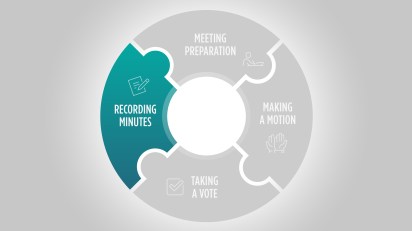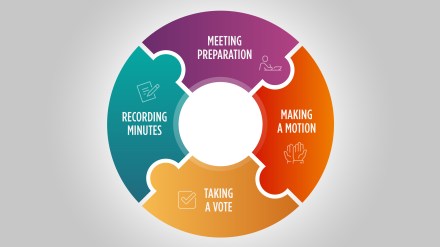Church Law & Tax Senior Editorial Advisor Sarah E. Merkle understands the importance of planning and holding an effective church meeting.
“Many church members and leaders don’t know the risk to churches that do not understand parliamentary procedure or carefully follow it,” Merkle says. “There can be legal implications for not keeping minutes of actions taken by the church. Churches that don’t think through quorum or are careless about voting or the election of officers will often find themselves in a procedural mess. And spiritually, a congregation may experience strife and contention if there is a lack of good leadership or poor member involvement in church business. Avoid problems by following principles of parliamentary procedure and good governance.”
In this companion to “Mastering Meeting Basics,” Merkle offers this hypothetical case study, a four-part series on how to plan, hold, and document an effective church meeting. From planning the meeting to making motions, and from taking votes to capturing minutes, this series can offer valuable insights.
Any church leader responsible for planning and holding effective church meetings should bookmark this resource.
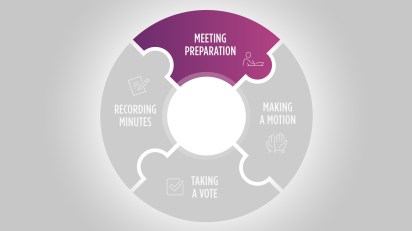
Part 1 of 4: Prepping for a Church Meeting
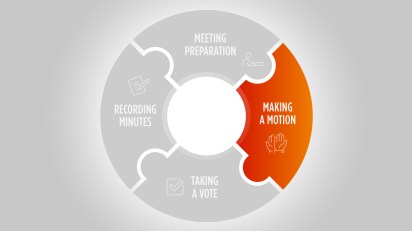
Part 2 of 4: Managing Meeting Motions
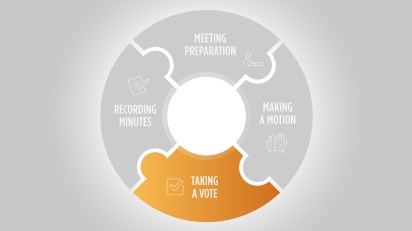
Part 3 of 4: Making Every Vote Count
